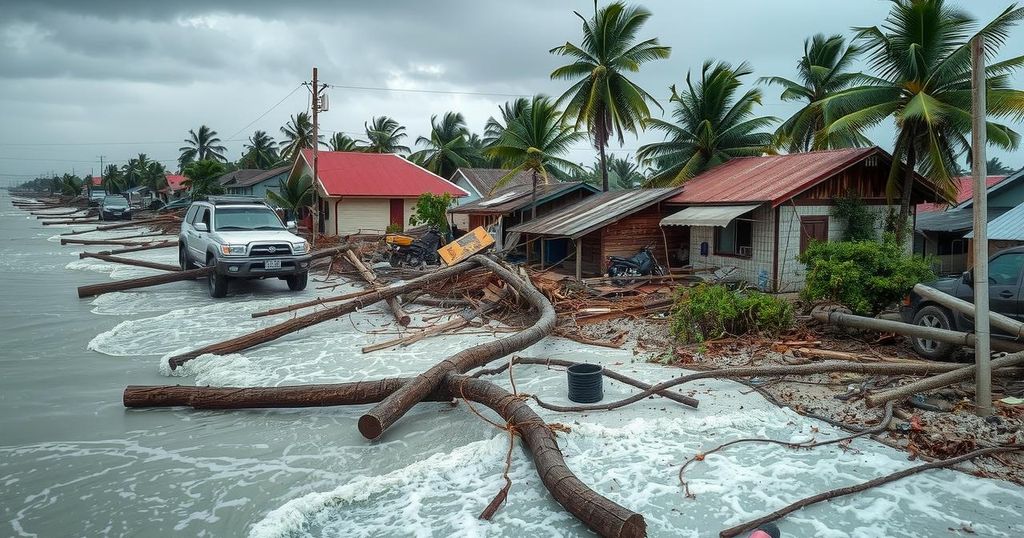Tropical Cyclone Chido made landfall in Mozambique on December 15, 2024, causing extensive damage across northern regions, impacting 174,000 people with significant loss of homes and infrastructure. The cyclone worsened existing vulnerabilities in Cabo Delgado, particularly in agriculture and health services, and heightened the risk of waterborne diseases. Immediate support is necessary for recovery and resumption of livelihoods, as most Mozambicans rely on agriculture for sustenance.
On December 15, 2024, Tropical Cyclone Chido struck the district of Mecufi in Cabo Delgado Province, Mozambique, delivering devastating winds reaching 120 km/h and torrential rainfall exceeding 250 mm within a mere 24 hours. This event has inflicted severe damage on the northern regions of Mozambique, notably Cabo Delgado, Nampula, and Niassa, while also affecting Tete and northern Zambézia. Reports from the National Institute for Disaster Management and Risk Reduction (INGD) indicate that by December 17, 174,000 individuals had been impacted, resulting in 34 fatalities and 319 injuries.
The cyclone has resulted in the destruction or damage of over 35,000 homes and critical infrastructure, including schools, health facilities, and water systems. Cabo Delgado, already facing challenges owing to conflict-related displacements and an ongoing cholera outbreak, has encountered further vulnerabilities in the aftermath of this disaster. In particular, the districts of Mecufi and Chiure have reported nearly total destruction, affecting 100 percent of homes and rendering health services non-operational.
Moreover, significant agricultural losses have occurred, with thousands of hectares of crops and seeds—such as maize, beans, sesame, and cassava—obliterated. This situation has led to severe food shortages and has hindered recovery efforts for local communities. In the Nampula province’s Memba and Erati districts, over 3,600 families have suffered notable damages to their fishing assets and livelihoods. Additionally, the destruction of water and sanitation infrastructure has heightened the risk of waterborne diseases, especially cholera. The disrupted communication and power networks are exacerbating challenges in delivering humanitarian assistance.
With more than 80 percent of the Mozambican population dependent on agriculture for sustenance and income, immediate and effective measures are crucial to support affected households in rebuilding their lives, restoring food security, and reinstating livelihoods in the wake of Cyclone Chido.
Cyclones pose a significant threat to Mozambique, especially during the rainy season when they can wreak havoc on infrastructure, agriculture, and public health systems. The occurrence of Tropical Cyclone Chido exemplifies the vulnerabilities faced by the regions within Mozambique, particularly in Cabo Delgado, which is currently coping with the dual burden of natural disasters and socio-political instability. Previous cyclones have similarly disrupted lives in these areas, making resilience-building essential. The robust reliance on agriculture for income and food further complicates recovery efforts as natural disasters can have a long-lasting impact on local economies and food systems.
In summary, Tropical Cyclone Chido has had a catastrophic impact on northern Mozambique, affecting tens of thousands of individuals and destroying homes and vital infrastructure. The existing vulnerabilities exacerbated by this cyclone underscore the urgent need for humanitarian intervention, particularly to address food shortages and prevent the spread of diseases in affected areas. It is imperative that concerted efforts are dedicated to recovery and support for the communities impacted by this disaster.
Original Source: reliefweb.int






